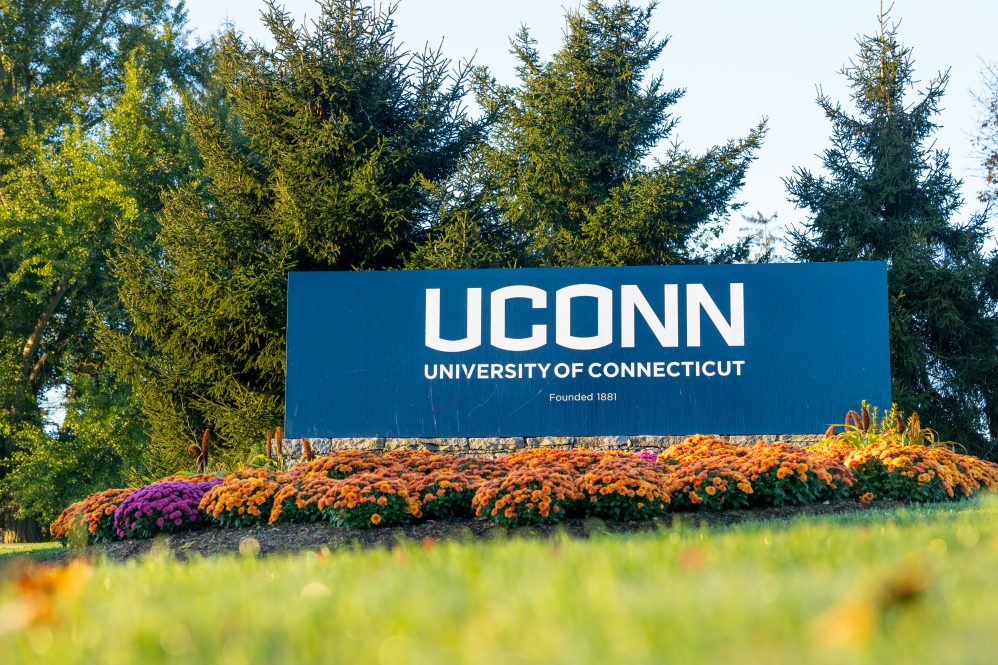UConn students overwhelmingly want the University to focus its resources on academic support and advising, and they prioritize on-campus housing and student activities as the amenities that will best enhance their college experience, according to a new survey.
The survey, which drew responses from more than one-third of undergraduates across all campuses, are among several tools and resources from which UConn is drawing ideas for its new Strategic Plan, which will be presented in draft form to the Board of Trustees on Wednesday.
President Radenka Maric launched the strategic planning process this year with the formation of a steering committee, which is guiding working groups that have spent the last several months delving into specifics on what the plan should incorporate when it is finalized in 2024.
The strategic visioning process has included in-person and virtual forums to gain input from students, employees, and others on UConn’s priorities over the coming 10 years to 2034.
It has included deep dives into specifics of how to ensure students’ academic success and well-being, maximize UConn’s research enterprise and its impact, support Connecticut’s economic development, and ensure effectiveness in how initiatives are implemented.
Margaret Feeney, UConn’s executive director of strategic planning and initiatives, said the process has included listening sessions at all campuses, wide-ranging discussions with a variety of constituencies, and using the data from new and existing surveys of employees, parents, donors, alumni, industry partners, and others to “get a pulse on the wider Husky community.”
The student survey, which was conducted over five days in September, is one of those many tools being used to inform the process.
“I truly believe we exist because of our students, and hearing their voices and prioritizing based on what we learn from them is very important,” Maric said when presenting some of the data earlier this fall to the Board of Trustees.
Depending on the topic, some previous student surveys have garnered response rates between about 5% and 12%. However, student interest in the new survey was clear, with a 35.5% response rate overall among all UConn undergraduates, and a highs of 46% at Avery Point and 40% at Hartford.
According to the survey, when asked where the University should focus revenue from the tuition and fees it collects, students ranked academic support as their highest priority, followed by academic advising; mental health services; initiatives to support diversity, equity, and inclusion; and physical / medical services.
In fact, the top three priorities – academic support, academic advising, and mental health services – were the same across all campuses: “It shows you how consistently our students see these areas as needs, and the actions that we need to take in establishing our priorities,” Maric says.
When asked about the priorities they felt would best enhance their lives on campus beyond the academic realm, more than half of the students ranked availability of desirable on-campus housing options as their highest choice.
In fact, desirable on-campus housing was ranked either first or second place by more than two-thirds of the respondents. The others, in descending order, were student activities; training and career services for job skills and their professional development; off-campus housing options; and financial literacy skills.
In addition to the direct outreach to all students by email, the survey response rate was also helped by assistance from faculty, who set aside time in classes for students to complete the 5-minute questionnaire; and promotional ideas such as random drawings for a chance at UConn basketball tickets for those who participated.
Reminders were posted in residence halls and on video monitors in common areas such as the Student Union and academic buildings. The University also conducted specific outreach to ensure the voices of students from traditionally underrepresented populations were included.
“We worked in multiple ways to reach every student,” Provost Anne D’Alleva told trustees at their recent meeting. “I think the survey is going to be a tremendous resource for our deans and of course for the strategic planning process, and is absolutely going to drive our priorities.”



